Lost & Found Elsewhere is a unique series of book-length projects
emerging from the research of Lost & Found editors. Working in
partnership with select publishers, these books bring to light
unpublished or long unavailable materials that have emerged alongside or as part of Lost & Found initiatives in archives across the country.
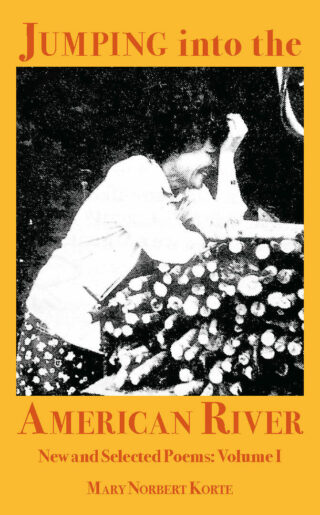
Jumping into the American River: New and Selected Poems Volume 1 by Mary Norbert Korte
Edited By Iris Cushing & Jason Weiss
Publisher: Argos Books with TKS Books
This is a true Outrider tale. Mary Norbert Korte (1934-2022) first went to the Catholic nunnery, and then to the woods to live deliberately as Thoreau did at Walden, aching for a radical spiritual frequency, a space and pace to breathe and awaken her own biophilia. Then she jumped into the wild mind of the New American Poetry and also kept evolving in the faith that never left her, continuing that devotional deliberation as the world kept opening its sensorium and she further dedicated her life to the saving of the giant sequoia. She was never not a poet. Her poems are often rituals in service of creation. Quirky too, even salty, down to earth, yet always with a dose of the sublime. Korte is a practitionerof the wild, as Gary Snyder would have it, which is more and more inside us as it disappears. There are so many beautiful, visionary poemsin this book. Meditations on dust as the “road that lives with you on your plate,” same dust on the same rhododendron, on the river, every mountain into the sea…Deep elegies for Lew Welch and Brother Antoninus, her lengths of loyalty there, an effortful dream of pushing her grandmother’s puce velour sofa up Mt. Everest, in “Sisypha: Running Down.” Myriad animalia, winged and walking always entering with their own lifestyles, scent of wild sage, and place at the bottom of the canyon where the sky breaks open a few moments a day and you look up the way you’d check for spiders on the outhouse seat. “A Breviary in Time of Drought” had me weeping, with a sense of the timelessness of mystic faith. How we might better count and dedicate our hours. As she does with her sharp ecological attentions to the thousand things of this world. She was a rarity, brave steward of her own life and held what wasaround her always in companionship and with awe. May this book travel far and wide. And may Mary Norbert Korte be recognized as well for the communities she inhabited, and brought life to, alongside the Beats and San Francisco cultural poet heroes. Welcome to her gates of Eden. – Anne Waldman
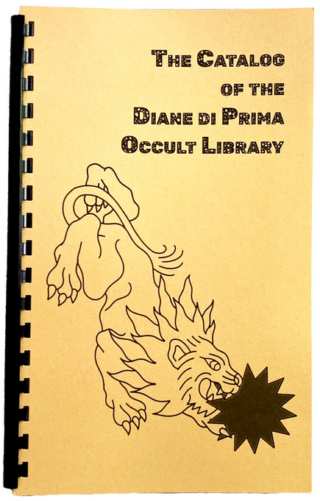
The Catalog of the Diane di Prima Occult Library
Editor/authors: Diane di Prima, Mary Catherine Kinniburgh
Publisher: TKS Books
Several
years in the making, this catalog contains introductory essay,
photographs, and complete bibliography of poet Diane di Prima's occult
library—a collection she alludes to her memoir, Recollections of My Life as a Woman. The
library contains numerous themes that appeared in di Prima's poetry,
including alchemy, medieval mysticism, premodern history, the Kabbalah,
Aleister Crowley, psychedelics, crystal healing, and more. Many of the
books were inscribed by friends or annotated with reading notes by di
Prima, which the bibliography notes. The occult library was recently placed by Granary Books at the University of North Carolina at Chapel Hill.
10 x 6 in. comb-bound book, 64 pp., with holographic gold cardstock cover. Cover image by Zoe Kudrnac.
This is from the second printing, printed in black and white in an edition of 55 copies. There is a low-res PDF version available at no cost.
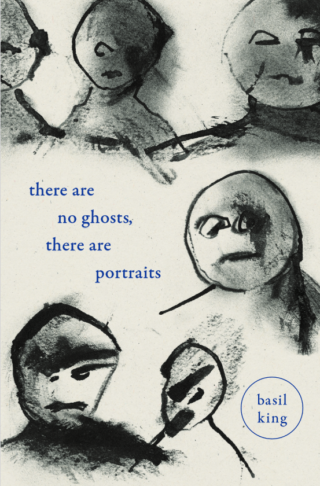
There Are No Ghosts, There Are Portraits by Basil King
Editor: Öykü Tekten
Introduction: Ammiel Alcalay
Co-publisher: Pinsapo Press
Lost & Found: The CUNY Document Initiative's is excited to announce a new collaborative partnership with Pinsapo Press presenting our first co-publication There Are No Ghosts, There Are Portraits, an exciting new book by Basil King, introduced by Ammiel Alcalay, and edited with an afterword by Öykü Tekten. From Ammiel Alcalay's introduction:
"[...] each of the texts included here — taking up figures as disparate as Billy the Kid, poets Samuel Greenberg and Isaac Rosenberg, painters Velazquez, van Dyke, Rubens, Soutine, Modigliani, Chagall, and so many others — seem to have been poured through Olson’s alembic, his “Special View of History,” as Basil punctiliously records and juxtaposes the facts “that matter,” so “fact can be fable again.” Like the vast visual and textural vocabulary of his paintings, Basil King’s latest textual landscapes portray worlds torqued into collision and relation, close to the bone and heart, close to our own felt ways of knowing. Work so condensed to its essential elements is all too rare, and the formal effect of these writings is overwhelming. Basil King’s There Are No Ghosts, There Are Portraits is a treasure that deserves both our attention and study."
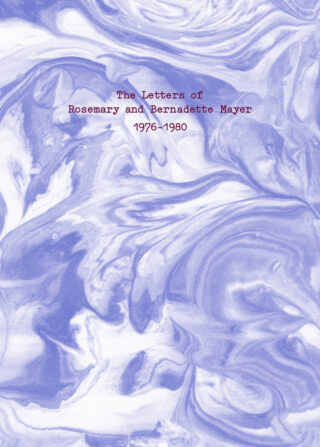
The Letters of Rosemary and Bernadette Mayer 1976–1980
Editors: Gillian Sneed & Marie Warsh
Publisher: Swiss Institute, Lenbachhaus, Ludwig Forum, and Spike Island
Two sisters, an artist and a poet, describe the
contours of their lives among New York’s artistic avant-garde through an
intimate collection of letters.This collection of the correspondence between artist Rosemary Mayer
(1943–2014) and poet Bernadette Mayer (born 1945) occurs between the
years of 1976 and 1980, a period of rich creativity in New York’s
artistic avant-garde, and one which includes the development of major
bodies of work by the two women. Rosemary Mayer was creating sculptures,
watercolors, books and “temporary monuments” from weather balloons and
snow, while Bernadette Mayer was working on some of her best-known
publications, including the book-length poem Midwinter Day and the poetry collection The Golden Book of Words.
Spanning the worlds of Conceptual art, Postminimalism, feminism, the
New York School, Language poetry and more, these letters elucidate the
bonds of sisterhood through intimate exchanges about art, relationships
and everyday life. Click here to buy this book and for more information.
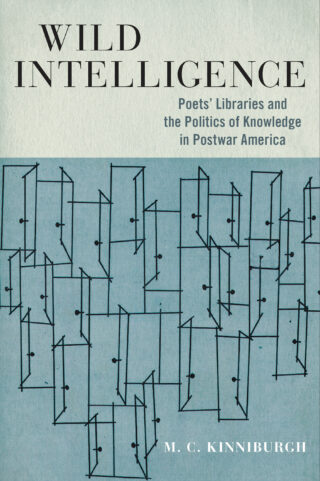
Wild Intelligence: Poets' Libraries and the Politics of Knowledge in Postwar America
Editor: Mary Catherine Kinniburgh
Publisher: University of Massachusetts Press
Wild Intelligence traces a different history of information
management, examining the privately assembled collections of poets and
their knowledge-building practices at midcentury. Taking up case studies of four poets who began writing during the 1950s and 1960s, including Charles Olson (1910–1970), Diane di Prima (1934–2020), Gerrit Lansing (1928–2018), and Audre Lorde (1934–1992), M.C. Kinniburgh shows that the postwar American poet’s library should not just be understood according to individual books within their collection but rather as an archival resource that reveals how poets managed knowledge in a growing era of information overload. Exploring traditions and systems that had been overlooked, buried, occulted, or censored, these poets sought to recover a sense of history and chart a way forward; Kinniburgh seeks to tell their story. Click here to buy the book and for more information.
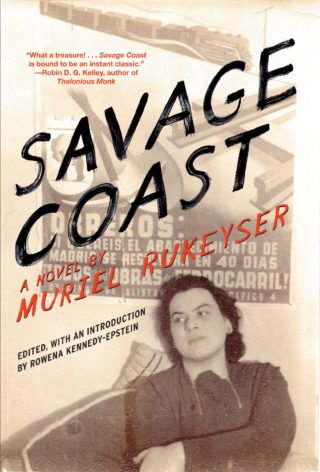
Savage Coast by Muriel Rukeyser
Editor: Rowena Kennedy-Epstein
Publisher: The Feminist Press
As a young reporter in 1936, Muriel Rukeyser traveled to Barcelona during the first days of the Spanish Civil War. She turned this experience into an autobiographical novel, providing one of the few first-hand accounts of the war written by a foreign woman, despite the enormous number who reported from Spain. This lyrical work, at once avant-garde and documentary, was rejected by Rukeyser’s publisher in 1937 for its radical politics and hybrid aesthetic and is published here for the first time by The Feminist Press. The novel is a modernist investigation of violence, activism, and desire, mapping her political and sexual awakening onto the larger narrative provided by the popular front resistance to the fascist coup. The text is an important and absorbing testimony to those who fought and died for freedom and justice during the first major battle against European fascism.
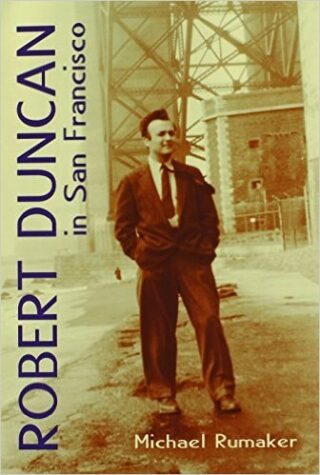
Robert Duncan in San Francisco by Michael Rumaker
Editors: Ammiel Alcalay & Megan Paslawski
Publisher: City Lights Books
A newly expanded edition of an enduring classic, Robert Duncan in San Francisco is both a portrait of the premier poet of the SF Renaissance and a fascinating account of gay life in late 1950s America. Following his graduation from Black Mountain College, Michael Rumaker made his way to the post-Howl, pre-Stonewall gay literary milieu of San Francisco, where he entered the circle of Robert Duncan. His account of that time gives an unvarnished look at Duncan’s magnetic personality and occasional failings, while delivering vivid snapshots of other significant poets like Jack Spicer, John Wieners, and Joanne Kyger, against the backdrop of legendary North Beach haunts like The Place, Vesuvio, and City Lights Books. Contrasting Duncan’s daringly frank homosexuality with his own then-closeted life, Rumaker conjures up with harrowing detail an era of police persecution of a largely clandestine gay community struggling to survive in the otherwise “open city” of San Francisco. First published in 1996, this expanded edition includes a selection of previously unpublished letters between Rumaker and Duncan, and an interview conducted for this edition, in which Rumaker provides further reflections on the poet and the period. As Russell Banks writes of the book: “Much more than memoir; it’s history.”
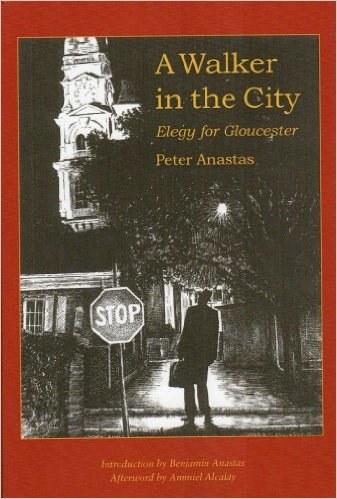
A Walker in the City: Elegy for Gloucester by Peter Anastas
Publisher: Lost & Found Elsewhere and Back Shore Press
Lost & Found Elsewhere teamed up with Back Shore Press to produce A Walker in the City: Elegy for Gloucester by Peter Anastas, with a forward by the author’s son, novelist and essayist Benjamin Anastas, and an afterward by Ammiel Alcalay. A Walker in the City presents selected newspaper columns Peter Anastas published as part of “This Side of the Cut” in the Gloucester Daily Times between 1978 and 1990. Anastas writes about growing up in Gloucester in the 1940s, about the rich social and cultural life of a multiethnic community, and the city’s abundant wildlife, vital fishing industry, and endangered natural environment, all set within the wider historical implications of rapid change and local politics. As one reviewer wrote: “In his urgency to capture the essence of his childhood and its symbiotic link to Gloucester, he manages to present a multi-sensory re-creation of what we thought we’d lost—our youth. At the same time, he chronicles a community’s struggle for the survival of self.” Scholar David Rich puts it: “Like Olson, Anastas reads like an exile from a future time. Nothing in this collection is vintage, all is live goods.”
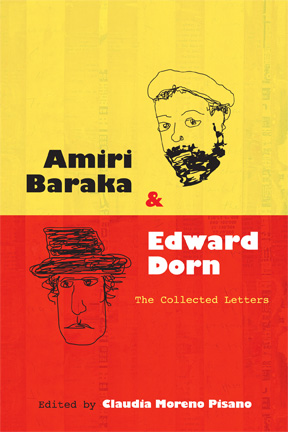
Amiri Baraka and Edward Dorn: The Collected Letters
Editor: Claudia Moreno Pisano
Publisher: University of New Mexico Press
Winner of the 2014 Pen Oakland Josephine Miles Award
From the end of the 1950s through the middle of the 1960s, Amiri Baraka (1934–2014) and Edward Dorn (1929–99), two self-consciously avant-garde poets, fostered an intense friendship primarily through correspondence, as seen in this University of New Mexico Press edition. The early 1960s found both poets just beginning to publish and becoming public figures. Bonding around their commitment to new and radical forms of poetry and culture, Dorn and Baraka created an interracial friendship at precisely the moment when the Civil Rights Movement was becoming a powerful force in national politics. The major premise of the Dorn-Jones friendship as developed through their letters was artistic, but the range of subjects in the correspondence shows an incredible intersection between the personal and the public, providing a schematic map of what was so vital in postwar American culture to those living through it. Their letters offer a vivid picture of American lives connecting around poetry during a tumultuous time of change and immense creativity. Reading through these letters allows access into personal biographies, and through these biographies, profound moments in American cultural history open themselves to us in a way not easily found in official channels of historical narrative and memory.
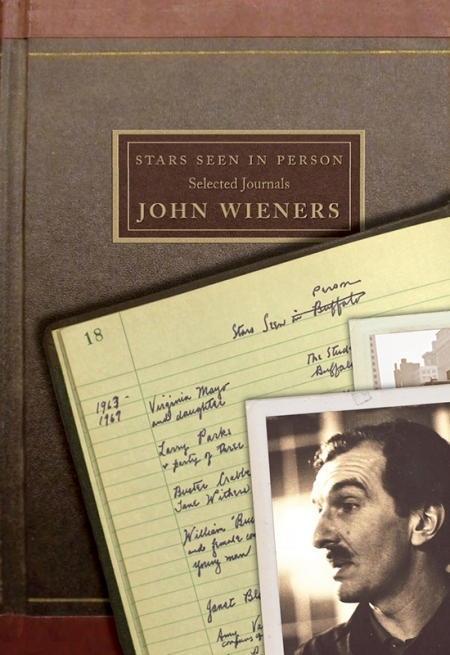
Stars Seen in Person: Selected Journals by John Wieners
Editor: Michael Seth Stewart
Publisher: City Lights Books
John Wieners was on the periphery of many of the twentieth century’s most important avant-garde poetry scenes, from Black Mountain and the Boston Renaissance to the New York School and the San Fransisco Renaissance. Having achieved cult status among poets, Wieners has also become known for the compelling nature of his journals, a mixture of early drafts of poems, prose fragments, lists, and other fascinating minutiae of the poet’s imagination. Stars Seen in Person: Selected Journals of John Wieners collects four of his previously unpublished journals from the period between 1955 and 1969. The first journal depicts a young, openly gay, self-described “would-be poet” dashing around bohemian Boston with writer and artist friends, pre-drugs and pre-fame. By the last book, decimated by repeated institutionalizations (the first for drug-related psychosis, the rest the consequence of the first) and personal tragedies, Wieners is broken down and in great pain, but still writing honestly and with detail about the life he’s left with. These journals capture a post-war bohemian world that no longer exists, depicted through the prism of Wieners’ sense of glamour.